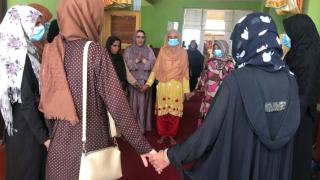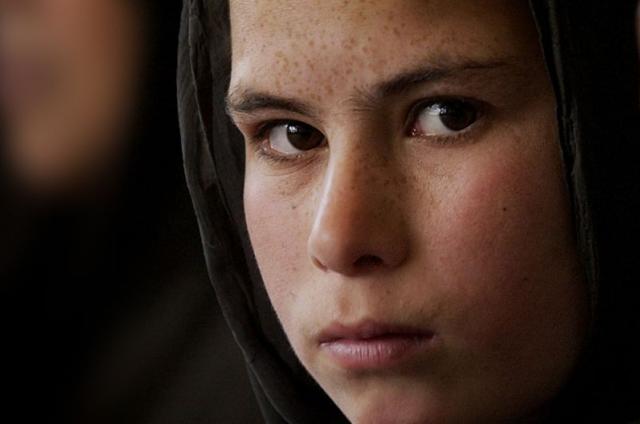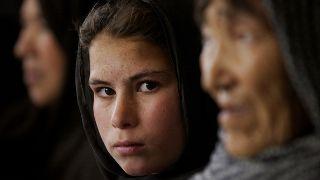Afghanistan: We're Here To Stay
Women for Women International has operated in Afghanistan since 2002, serving over 127,000 women – and we are here to stay.
Since August 2021, the lives of women in Afghanistan have completely changed. Millions are starving and have lost access to their hard-earned rights, education and jobs.
Today, Women for Women International is one of the few organisations providing direct services to Afghan women. It is thanks to funds raised by players of People's Postcode Lottery and our global community that we have been able to adapt our programme to run safely, despite current restrictions.
Here's what we're doing to support women living in one of the most dangerous places on earth:
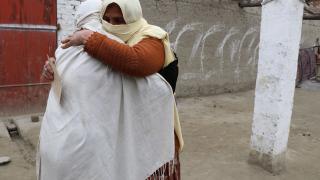
Reopening our centres
On 30th January, after months of negotiations with the de facto government, we began to reopen our training centres
When we were granted permission to resume programming, we gradually reopened our training centres - starting in Nangahar province.
We began by enrolling women who had been in our Stronger Women, Stronger Nations programme before the crisis began in August 2021. 99% of women returned – 350 participants across two training centres in the area.
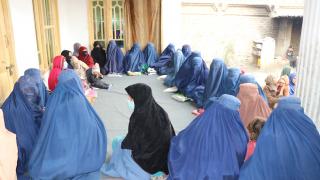
Our team in Afghanistan told us that participants were very emotional when they learned the centres were reopening and it gave them much-needed hope.
Women in our programme shared their excitement at being able to meet in person and were very appreciative of having a safe space where they could share their fears and challenges in adapting to the new restrictions.
One woman shared:
"We are not coming here only for stipend, but to learn from trainers, share our problems and reconnect with each other in person."
Enrolling More Women
We have enrolled women in three provinces: Nangahar, Parwan and Kunar
After enrolling women who had been participating in our programme before we were forced to close, we began to enroll new women too.
We started by operating in three provinces and now have over 2,600 women participating in our Stronger Women, Stronger Nations programme across 12 training centres.
Resuming our work in Kabul
We recently reopened centres in Afghanistan's capital, Kabul
After receiving permission from the de facto government to resume our work in Kabul, we opened three training centres on 14th August. Over 750 women have already enrolled, including Zarmina.
Zarmina is a widow, solely responsible for providing for her eight children. She was struggling financially and emotionally when the programme paused, but shared that she’s happy to be back where she feels a sense of belonging and hope for the future.
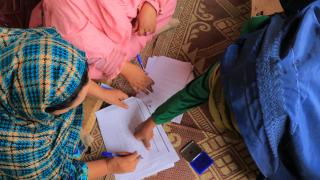
Providing stipends
With the economic and food crises growing, monthly stipends are critical support for women and their families
With millions of Afghans facing acute food shortages, our participants, especially those who are mothers, described their pain at having to watch their children go to bed hungry.
With stipends being provided in the training centres, our participants can now feed their children and support their families financially. We also provided additional support in winter to help families manage during the coldest months.
We were happy to hear the programme was resuming because that means we can learn again and above all we can help our family financially as it feels very painful when our children ask for food and we don’t have anything to feed them.
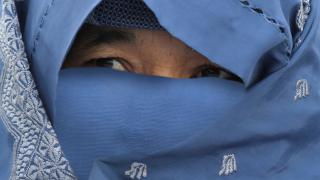
Raising Afghan women's voices
Calling on the international community to act with Afghan women
After speaking to current and former participants of our programmes across Afghanistan and to Afghan women’s rights activists and organsations continuing their work within the country, we released our report, No One Hears Our Voices. We shared the hopes and fears of Afghan women, and an overarching message that emerged through our surveys and interviews: the international community has a vital role to play in exercising its power to support Afghan women's rights and alleviate the country's economic crisis.
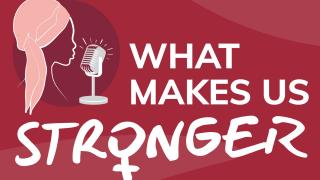
Amplifying Afghan Experiences
Sharing the experiences of our Afghan colleagues with our global community
In just one year, women’s lives have gotten a lot harder in Afghanistan. Unable to work, go to school or leave their homes without a male guardian, they are struggling to adapt to new restrictions.
In this episode of our podcast, What Makes Us Stronger, we talk to our Afghan colleagues about what it feels like to lose basic freedoms - and about what makes them stronger, against the odds. They also discuss how Afghan women are finding ways to meet and build a better life for themselves, and how we at Women for Women International are supporting them to do that.
Keep reading
Hear from Afghan women
subtitle:
We've compiled a list of books, blogs, podcasts, (and more!) so you can hear directly from Afghan women and learn about their inspirational and courageous stories.
In the past 12 months, we have seen women's rights in Afghanisan roll back - and they continue to be restricted more and more.
Please Don't Forget Afghanistan
subtitle:
Latifa Faqirzada worked for Women for Women International - Afghanistan for nearly four years. With the help of the UK government, she left Kabul in August 2021 during the final days of the US/UK troop withdrawal. She is currently residing in London and advocating for the women who remain in Afghanistan. This blog is her personal story.

